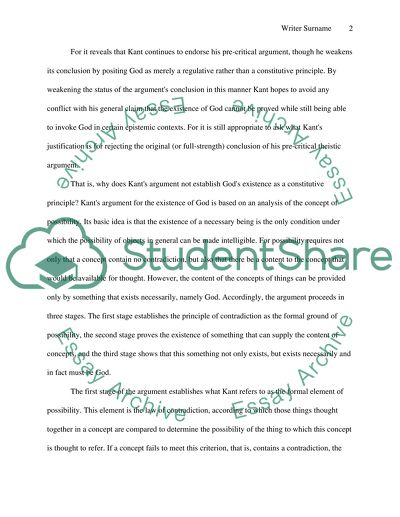Cite this document
(“Limiting Knowledge to Make Room for Faith: how the distinction between Essay”, n.d.)
Limiting Knowledge to Make Room for Faith: how the distinction between Essay. Retrieved from https://studentshare.org/miscellaneous/1536344-limiting-knowledge-to-make-room-for-faith-how-the-distinction-between-reason-and-understanding-assigns-god-the-status-of-a-regulative-principle-in-kants-criti
Limiting Knowledge to Make Room for Faith: how the distinction between Essay. Retrieved from https://studentshare.org/miscellaneous/1536344-limiting-knowledge-to-make-room-for-faith-how-the-distinction-between-reason-and-understanding-assigns-god-the-status-of-a-regulative-principle-in-kants-criti
(Limiting Knowledge to Make Room for Faith: How the Distinction Between Essay)
Limiting Knowledge to Make Room for Faith: How the Distinction Between Essay. https://studentshare.org/miscellaneous/1536344-limiting-knowledge-to-make-room-for-faith-how-the-distinction-between-reason-and-understanding-assigns-god-the-status-of-a-regulative-principle-in-kants-criti.
Limiting Knowledge to Make Room for Faith: How the Distinction Between Essay. https://studentshare.org/miscellaneous/1536344-limiting-knowledge-to-make-room-for-faith-how-the-distinction-between-reason-and-understanding-assigns-god-the-status-of-a-regulative-principle-in-kants-criti.
“Limiting Knowledge to Make Room for Faith: How the Distinction Between Essay”, n.d. https://studentshare.org/miscellaneous/1536344-limiting-knowledge-to-make-room-for-faith-how-the-distinction-between-reason-and-understanding-assigns-god-the-status-of-a-regulative-principle-in-kants-criti.


